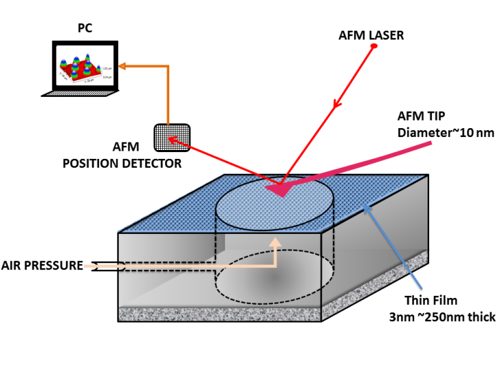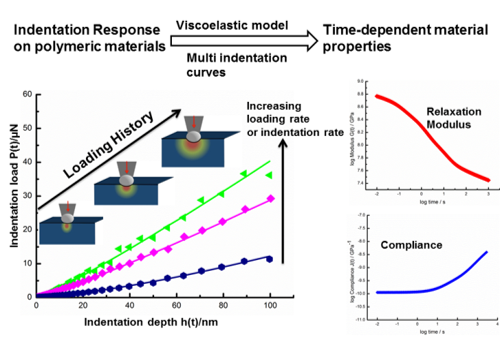Rheological Measurements of Ultrathin Polymer Films

In recent years, considerable effort has been put into understanding the change in the behavior of polymeric materials when they are reduced to the nanometer size scale. In particular it has generally been observed that the material at the nano-scale shows a reduced glass transition temperature (Tg), though it should be noted that this remains a controversial area of research with often-conflicting results on the presence and magnitude of such changes. The aim of my current research is to develop and apply a new nanorheological measurement method that allows the determination of the viscoelastic response of thin films in which the film thickness and lateral constraints can be varied systematically. The approach we have taken is to scale down the mesosopic bubble inflation biaxial test method such that polymer films of nanometer thickness can be tested.

Nanoindentation is becoming an important technique for characterization of material properties especially at small sizes and for small quantities of material. However the time dependent characteristics of viscoelastic materials make the application of indentation on, e.g., polymeric materials, problematic. We are focus on the study of extracting viscoelastic properties from indentation results. The new method, based on a viscoelastic contact mechanics analysis of multiple indentation curves obtained at different loading rates, provides a more complete and accurate description of the viscoelastic response.
